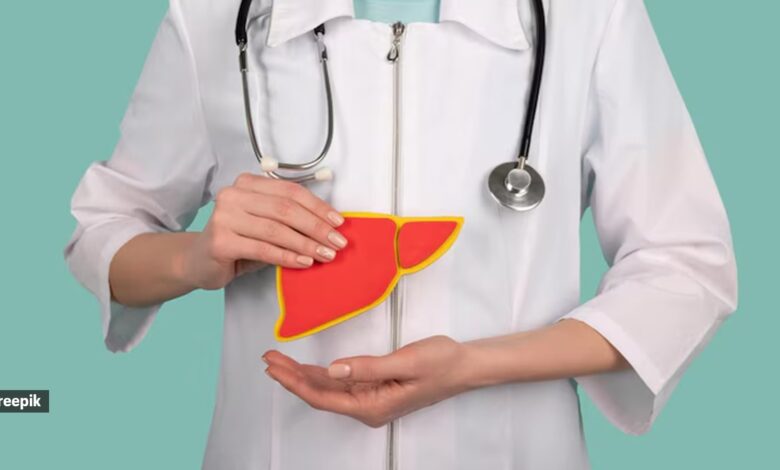What happens to the body when you have 6 cups of coffee daily?

Coffee is more than just a morning pick-me-up — it might be one of the simplest ways to protect your liver. According to Dr Cyriac Ab Philips, also known as TheLiverDoc on X, coffee has some powerful properties that help maintain liver health. In a video shared on X, he detailed the several benefits of drinking coffee. “Coffee reduces fatty deposition in the liver, it reduces inflammation and scarring due to the fat inside the liver, it prevents progression of fatty liver disease into cirrhosis, and in cirrhosis patients, it prevents or reduces the risk of development of liver cancers — this is because of its anti-fibrotic, anti-inflammatory, anti cholesterol and antioxidant effect, which is mostly brought on the chlorogenic acids and caffeine.”
He adds, “The European Association of Study of Liver practice guidance states that patients with chronic liver disease at risk of developing liver cancer must consume it. They recommended that they consume at least three cups of coffee a day.”
Story continues below this ad
Discussing the optimal daily coffee intake, he said, “It has to be black, unsweetened, minimum three cups per day. Incremental benefits up to 6 cups per day is noted. One cup is about 100-120 milliliters and is equivalent to 10 grams of whole-roasted coffee or 5 grams of instant coffee. So, instant coffee is also good. You may add a zero-calorie sweetener if you can’t taste pure black coffee. Decaffeinated coffee has similar effects, so if anybody has caffeine-related issues, go for decaf.”
Dr Philips adds that the last cup of coffee should be had at least four hours before bedtime. Furthermore, he states that coffee does not impact blood pressure or heart rate and does not contribute to reflux, gastritis, or stomach ulcers. For individuals at risk of liver cancer, he recommends drinking at least three cups of black, unsweetened coffee daily. These benefits stem largely from compounds like chlorogenic acids and caffeine, which work together to slow or stop the progression of fatty liver disease into more severe conditions like cirrhosis.
Good morning.Short and unsweetened.Coffee and the liver pic.twitter.com/jt7Or2JpUC
— TheLiverDoc (@theliverdr) February 12, 2025
But what exactly makes coffee so beneficial for liver health, and are there any caveats?
Dr Palleti Siva Karthik Reddy, senior consultant of Internal Medicine at Koshys Hospital, tells , “Several peer-reviewed studies support the claim that coffee consumption benefits liver health. Research published in the Journal of Clinical and Experimental Hepatology (2016) found that consuming at least two cups of coffee daily was linked to a reduced risk of liver fibrosis and cirrhosis due to its antioxidant and anti-inflammatory properties.”
He adds that the mechanisms behind this include:
Anti-Fibrotic Effect: Coffee inhibits hepatic stellate cell activation, preventing excessive collagen buildup, which is a key factor in liver fibrosis (World Journal of Hepatology, 2017).
Antioxidant Properties: Chlorogenic acids in coffee neutralize oxidative stress, a primary contributor to liver inflammation and damage (Clinical Gastroenterology and Hepatology, 2020).Story continues below this ad
Lipid Metabolism Regulation: Coffee components improve lipid oxidation, reducing fatty deposition in the liver, there preventing non-alcoholic fatty liver disease (NAFLD) progression (BMC Public Health, 2021).
On beneficial dose
According to Dr Reddy, scientific literature supports the notion that moderate coffee consumption protects liver health.
“A 2021 study in BMC Public Health found that both caffeinated and decaffeinated coffee significantly lowered the risk of chronic liver disease progression, with benefits observed at three to five cups per day. Additionally, a Clinical Gastroenterology and Hepatology (2020) study demonstrated that consuming more than three cups per day correlated with reduced liver stiffness, a marker for fibrosis,” he states.
However, he cautions that excessive coffee intake (more than six cups) has not shown additional benefits beyond a threshold and may cause jitteriness or digestive discomfort. Thus, three to five cups of black, unsweetened coffee daily is the optimal range for liver benefits.Story continues below this ad
DISCLAIMER: This article is based on information from the public domain and/or the experts we spoke to. Always consult your health practitioner before starting any routine.







